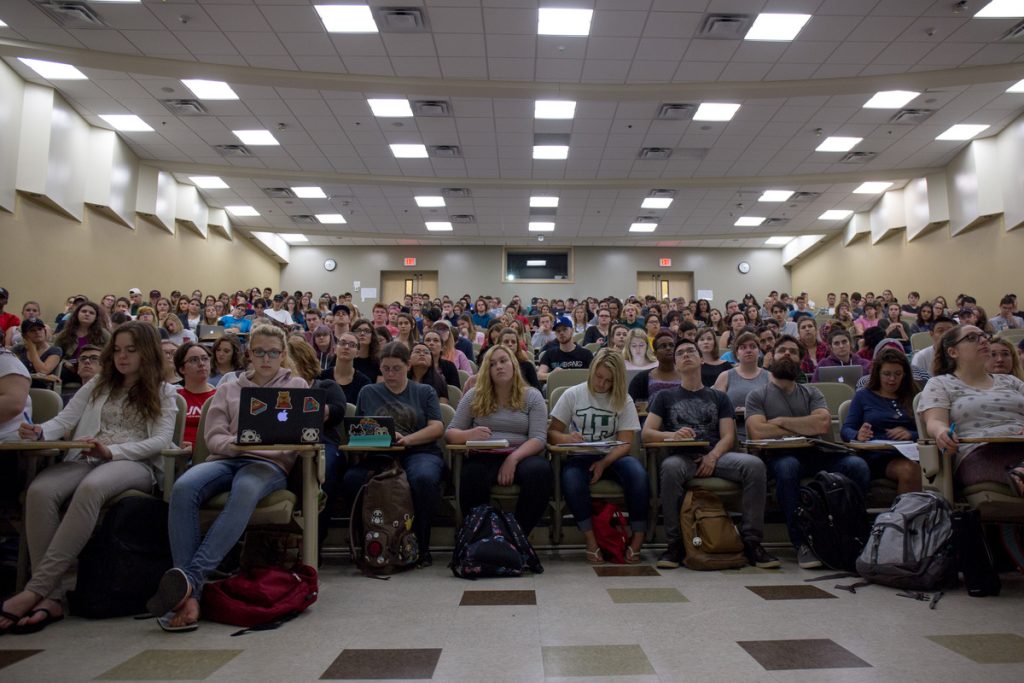“When I say we have to roll up our sleeves, I mean everyone.”
This was UNB president Paul Mazzerole’s response when asked how the financial cuts in the next five years will affect the UNB community, with specific respect to the student population.
In the annual bi-campus Budget Conversation, which took place on Jan. 27, UNB administration announced an upcoming 2 percent tuition increase and a reduction in the number of classes offered in an effort to reduce the university’s overall deficit.
He proposed the question, “If we have 28 Intro to Statistics courses, could we live with 14?”
Typically, first year courses have the largest class sizes, with numbers lessening as the class level increases. For professors, accommodating larger class sizes can require extra work to enhance the learning experience and give students the greatest possibility of academic success.
Mazzerole stressed that with impending cuts, the resulting changes must be made in order to maintain the current infrastructure and continue to draw prospective students.
While he stressed the importance of smaller tutorials to compensate for the increase in lecture sizes, he also acknowledged that budget cuts will “affect our ability to deliver the student experience.”
Dr. Jacqueline Low, a Professor of Sociology at UNB Fredericton, shared her personal methods to create opportunities for discussion in her larger classes. Through “purposeful activities” designed to enable discussion, her students are given the chance to “internalize the information.”
Contrarily, Dr. Low believes that there are more significant barriers to the learning experience, such as the increase in social media consumption “impairing students ability to interact.”
Another change that can be expected in the coming years is a 2 percent tuition increase. George MacLean, Vice President Academic, was present for the Q&A and spoke about the increase.
He stressed the importance of transparency, and made it clear that the increase was initially discussed two years ago with students, driving home the need to “make sure that students understand why their tuition rates change to the degree that they do.”
This increase will be formalized in April 2020, by the Board of Governors and Mazzerole, and will likely roll out in the upcoming 2020/21 school year.




